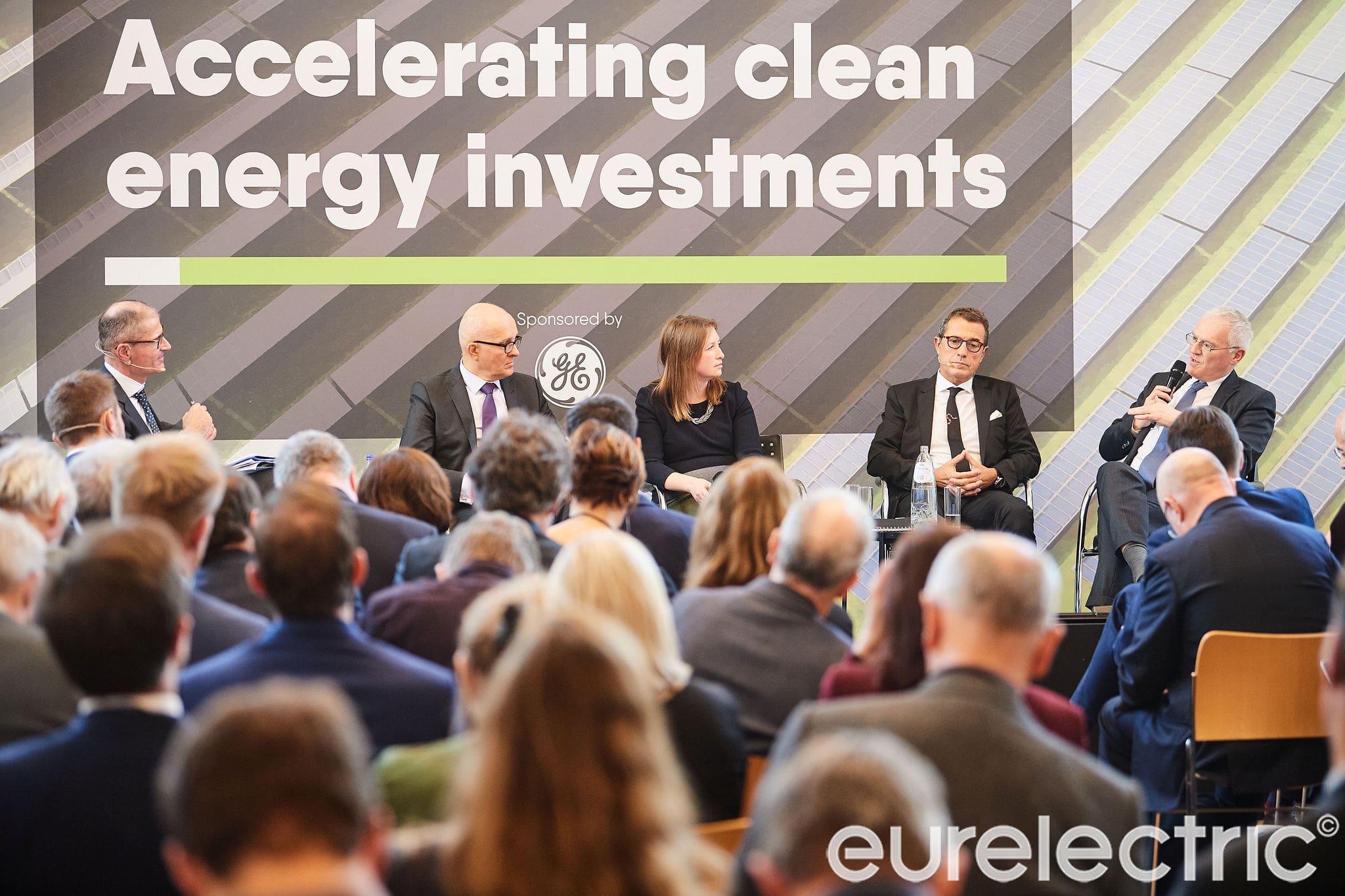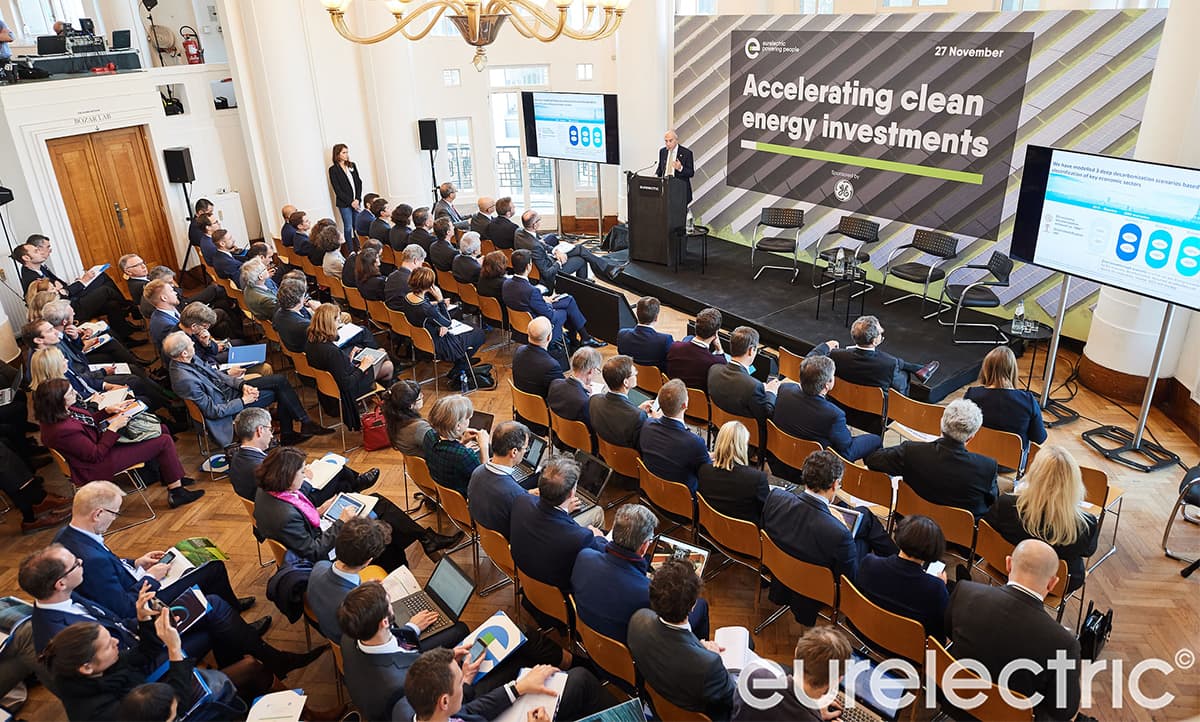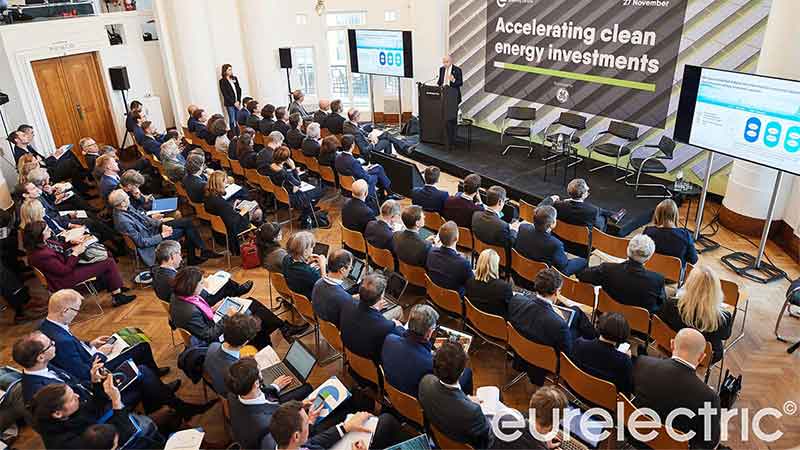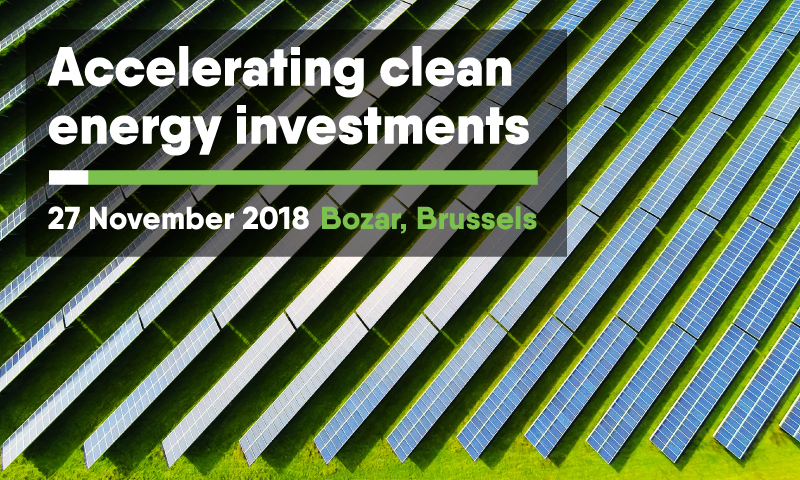
Link to the Press Conference pictures
On Tuesday 27 November, Eurelectric brought together a stellar line-up to discuss the fundamentals of decarbonisation and the means for accelerating clean investments. Over 150 participants joined the discussions with Eurelectric’s President, Francesco Starace, Commission’s Vice President, Maroš Šefčovič and IEA chief Fatih Birol, and prominent CEOs of the power sector.
Decarbonisation pathways, the study released on 26 November, set the scene for discussions. It shows that by 2045 the power sector can be fully carbon neutral, as the bulk of renewables will cover over 80% of supply. Decarbonising electricity can be done at a convenient price and at a faster pace.
How can we decarbonise?
Francesco Starace elaborated on the four key elements that will contribute to achieving carbon neutrality: build-up of transmission systems to fully integrate renewables; balancing and flexibility sources to ensure system reliability; incremental phase out of fossil generation; and commercial availability of carbon neutral technologies.
“As the costs for renewables have fallen significantly, the overall cost of carbon-neutral electricity generation has been reduced drastically in recent years. [..] We need to find the consensus of society and to be clear that the just transition needs to be a sustainable way of driving this change” – said Francesco Starace, President of Eurelectric and CEO of Enel.
Giving a flavour of the global picture, Fatih Birol further emphasised the local and regional particularities. He posited that “the global energy demand grows fast, but the global electricity demand grows two times faster”. Thus, infrastructure investments paired with cross-sectorial synergies are essential to ensure that renewables are less of a challenge for the systems.
“Wind will be the number one source of electricity generation. Offshore wind is the lion share. […] Europe has a comparative advantage in terms of offshore wind and should lead the international agenda.”
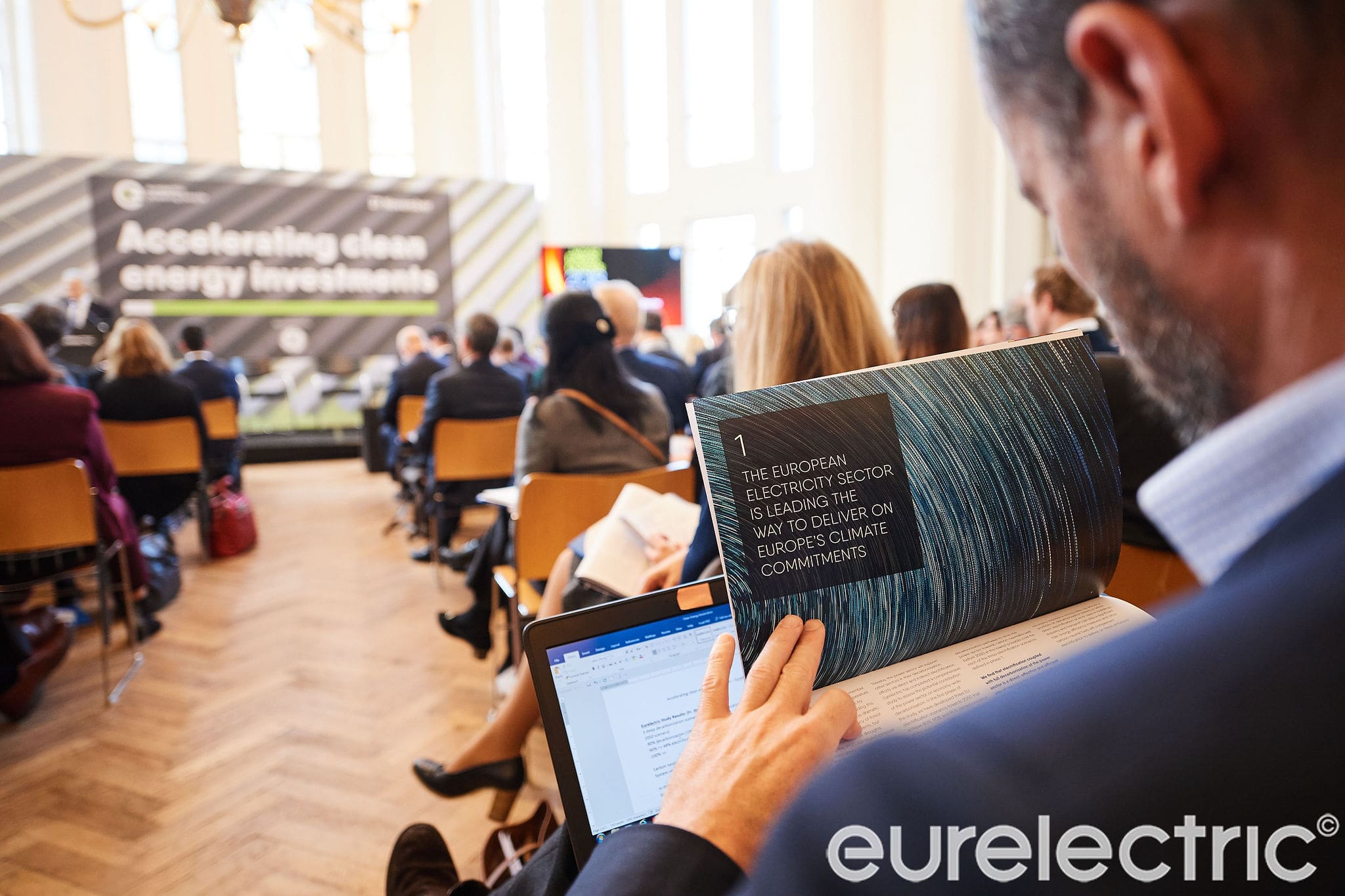
Investment Framework Needed for Accelerating the Energy Transition
Moderated by Ditlev Engel, the first panel addressed the investment framework needed for accelerating the energy transition. Jean-Bernard Levy (EDF), Stephanie Maier (HSBC), Antonio Mexia (EDP) and Peter Stracar (GE Europe) offered a 360 degrees view on the implications of speeding up decarbonisation. They concurred on the essential role of clear regulatory framework, adequate market designs and long-term price signals, together with higher societal engagement.
“A survey conducted in September canvasing global investments shows that over 97% of European investors recognise climate change and the need for energy transition.“[…] Momentum is important. We need to have commitment and will to deliver that. We need to ensure that we stay on that road.” - Stephanie Maier
Antonio Mexia, CEO of EDP added “Let’s have the will! We have the power, means and technology, and the momentum is here! […] It is very important that all stakeholders are engaged. Clearly electrification is a key element.”
Jean-Bernard Levy, CEO of EDF, emphasized the importance of air quality for the well-being of citizens. “What does it mean for the individual? There is a huge period of misunderstanding, miscommunication and misperception. We need to communicate more on why and how we need to transition and create those connections.” According to him, a solution to reduce the “bill shock” and to avoid reflecting the energy transition into more taxes is to build partnerships across sectors and industries.
Peter Stracar, President and CEO of General Electric (GE) Europe, emphasised the critical role of modernising the existing infrastructure for decarbonising our economies. For the organisation of this event, Eurelectric and GE partnered up. Interested in finding out more about GE’s decarbonisation strategy? You can have a look here.
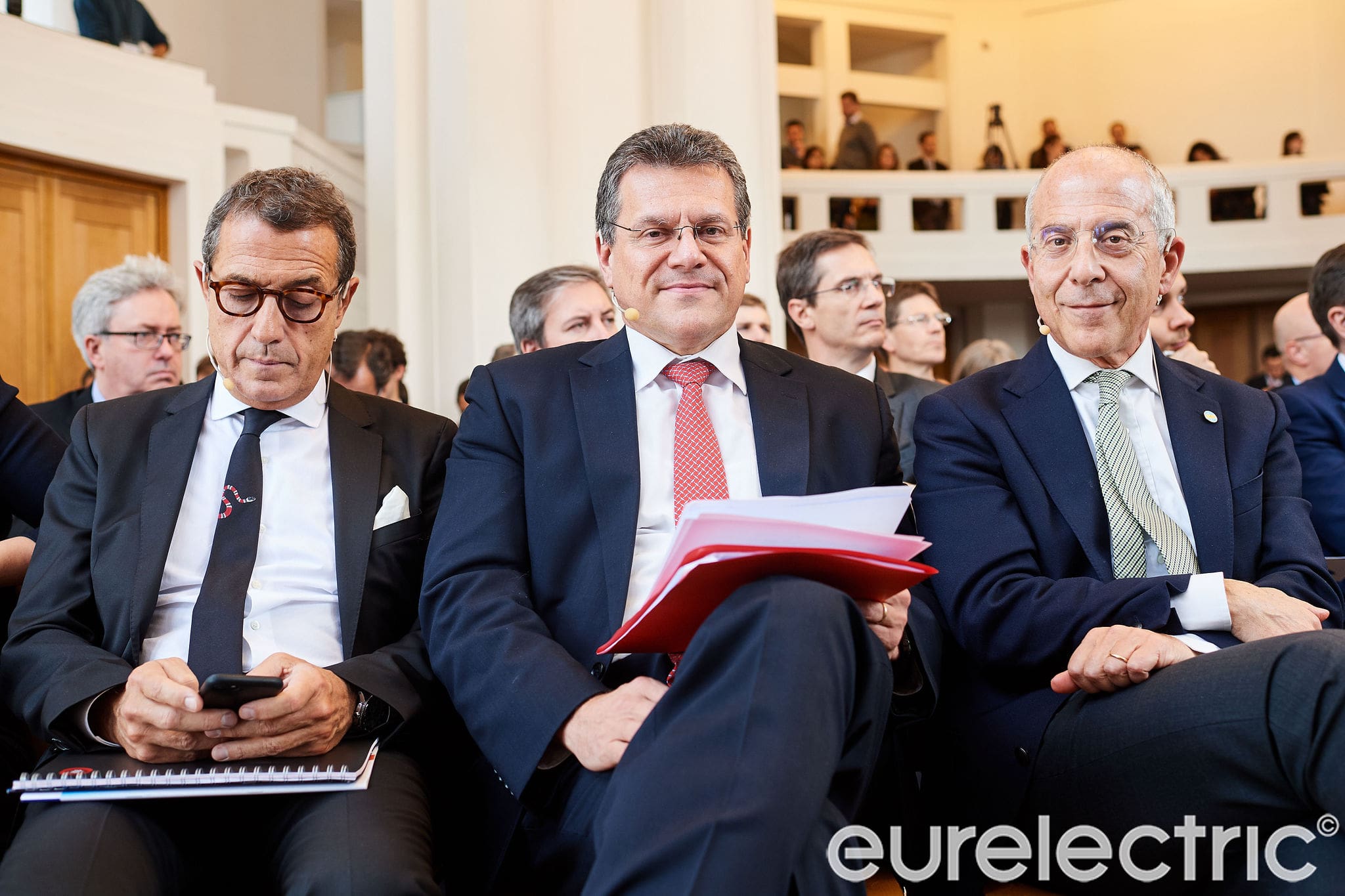
You Got the Power – Power Sector and Industry Decarbonisation Hand in Hand
Are the power sector and the industry decarbonisation going hand in hand? The answer was delivered during the panel moderated by Marion Labatut (Eurelectric). The cooperation needs for making it happen were debated by CEOs from utilities and energy intensive industries, such as Pekka Lundmark, (Fortum Corporation), Darius Maikštėnas (Lietuvos energija), Pat O’Doherty (ESB) and John Cooper (FuelsEurope).
Darius Maikštėnas, from Lietuvos energija, underlined that:
“If in Europe we are proactive and embrace these new business models and ecosystems, then we can export the model. It is essential for us to lead the change and to be pioneers. It is better to invest in the future than in the present or past.”
Pekka Lundmark, from Fortum Corporation addressed the need for aligning industries to support their decarbonisation process. He made the case for market mechanisms, a transparent sector coupling, partnerships and public subsidies for those elements that are not mature enough and available at a large scale.
“Europe should take the lead and at the same time needs to take seriously the concerns of energy intensive industries. We need partnerships and synergies. We need something very simple: market based mechanisms and transparency when it comes to sector coupling. The best way to achieve this is to use the market to minimise the cost of decarbonisation”, said Pekka Lundmark.
When talking about moving towards a more efficient building stock, Pat O’Doherty (ESB) highlighted that “deep electrification is the enabler of a decarbonised society”. He further explained the utmost importance of interconnections, grids and investments saying:
“We need to optimise investments and find better connections between producers and consumers. The future regime will be very different to what we have today […] When it comes to societal aspects, we need to see how we can afford it: this comes to policy in terms of regulations and to technologies in terms of design.”
John Cooper, from Fuels Europe, made the case for new investments, highlighting that energy-intensive industries are active in global markets, therefore their decarbonisation will have a world-wide impact.
Eurelectric’s proactive and constructive approach on leading the transition will be a strong guidance for the upcoming discussions with the current and new EU institutions next year. Therefore, the association will continue to strongly advocate for a higher uptake of electrification as the solution for decarbonisation.
